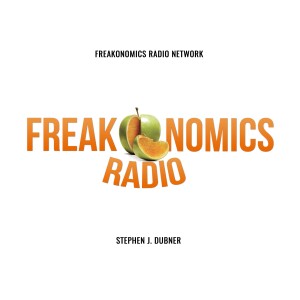

Gradient Proof
https://www.spreaker.com/show/5423226/episodes/feedEpisode List

EP8 - AI Envisioned: The Next Architectural Epoch
In this episode, “AI Envisioned: The Next Architectural Epoch”, speakers Roy Peer and Steven W Sorensen discuss various aspects of architecture and its evolution. They explore how technology has influenced architectural design throughout history, using examples such as the development of steel and elevators in New York City. They also discuss the work of architects like Louis Sullivan and Zaha Hadid, highlighting how advancements in technology have allowed for more complex and innovative designs. The speakers emphasize the importance of considering various forces, such as climate and cultural norms, when creating efficient and inclusive spaces. They also discuss the power of architecture to influence people and shape the identity of a city, using landmarks like the Eiffel Tower and the Empire State Building as examples. The podcast raises questions about the representation of different regions and cultures in architectural discussions, noting the absence of South America and Africa in the list of 100 buildings discussed. The speakers also explore the potential future of architecture, discussing topics such as reconfigurable homes, augmented reality, and the integration of technology in creating personalized and immersive living spaces. Overall, the podcast provides insights into the relationship between technology, architecture, AI and the human experience.In this Episode:[00:00] Architecture's changing forms and influences [13:45] Technological advancements in architecture [22:02] Designing optimal and personalized homes [30:21] Exploring path and experiential architecture [43:15] The impact of space and culture [52:58] Architectural feats and bold innovations [1:05:20] Imagining limitless architectural possibilities Bios:Roy Peer is an architect turned entrepreneur. After working for award-winning architects, Diller Scofidio + Renfro in New York City, he started a virtual reality company, which later sold to a notable Hollywood director in 2018. Peer is the founder of PeerBasics, a data-driven products company that analyzes e-commerce sales data to drive product launch decisions in multiple categories with multiple factory partners in Asia. Peer is the author of Simulation Arcade, a sci-fi novel that paints a possible future world where AI and brain chips are commonplace and details how humanity meets its AI cocoon moment and how to stop it.Steven W Sorensen is the director of corporate finance at droppGroup / droppLabs, an AI / ML web3 video & mixed reality shopatainment marketplace and co-founder & COO of Fotin Media. Steven calls NYC home, has lived in China for seven years and has an MA and M.Phil in English from The University of Hong Kong. He likes jazz piano and good whiskey.Mentions:A History of Architecture in 100 Buildings by Dan Cruickshank (2015)The 99% Invisible City: A Field Guide to the Hidden World of Everyday Design (2020)Keywords: #AI #architecture #artificialintelligence #NewYorkCity #technologyWhiskey: Knob Creek No. 9 https://www.knobcreek.com/our-products/kentucky-straight-bourbon-whiskeyWhere to find us:Website: https://www.gradientproof.com/Spreaker: https://www.spreaker.com/show/gradient-proofYouTube: https://www.youtube.com/channel/UCxL7P577RYAfZs2Urlfen8A/videosfZs2Urlfen8AApple: https://podcasts.apple.com/us/podcast/gradient-proof/id1609791261Spotify: https://open.spotify.com/show/79hPGESVg6PQoFYPW6hr2HiHeart: https://www.iheart.com/podcast/53-gradient-proof-92828114/Amazon: https://music.amazon.com/podcasts/49fd0440-ab6c-465f-853c-5f50542d7880/gradient-proofGoogle Podcast: https://podcasts.google.com/feed/aHR0cHM6Ly93d3cuc3ByZWFrZXIuY29tL3Nob3cvNTQyMzIyNi9lcGlzb2Rlcy9mZWVk?sa=X&ved=0CAIQ4aUDahcKEwiQzYXL5In2AhUAAAAAHQAAAAAQAQ&hl=enBuzzSprout: https://www.buzzsprout.com/1943076/resourcesPocketCasts: https://pca.st/6sea2xpbDeezer: https://www.deezer.com/us/show/3406232PlayerFM: https://player.fm/series/gradient-proofPodChaser: https://www.podchaser.com/podcasts/gradient-proof-4249087Patreon: https://www.patreon.com/gradientproofTwitter: @gradientproof https://twitter.com/gradientproofOther Projects:Buy Simulation Arcade in Paperbackhttps://www.amazon.com/dp/B09QF3YPV4Simulation Arcade Pre-Release NFT (comes with author-signed copy)https://opensea.io/collection/author-releaseFotin Media https://fotinmedia.com/droppLabs.io https://dropplabs.io/

EP7 - First, AI Resistance. Then, Human Renaissance
The Gradient Proof podcast features Steven W Sorensen and Roy Peer discussing the potential implications of artificial intelligence (AI) becoming more advanced and intelligent. They explore the potential of combining different nodes of AI development to create a more general artificial intelligence, and the pushback against AI research, particularly GPT research, with an open letter calling for a six-month moratorium on AI research. The speakers discuss the fear of job displacement and the resistance that may come from those who have spent their lives developing certain skills. They also talk about the potential for AI to make certain jobs more efficient and the resistance that may come from those who fear change. The podcast highlights the importance of considering the potential implications of AI becoming more advanced and intelligent, and the need for ethical considerations in its development. The speakers also discuss the potential biases of AI systems and the importance of finding efficiencies in achieving goals. The conversation highlights the potential of AI to solve problems and find efficiencies, but also raises questions about the limitations and biases of AI systems. Overall, the podcast provides insights into the potential of AI and its impact on self-actualization and problem-solving.In this Episode:[1:45] Being Human in The Age of Artificial Intelligence[06:23] Prompt Engineers [11:45] ChatGPT Sets the Bar in the AI Market[20:23] ChatGPT: an Architect's Creative Ally or Foe[26:20] Ensuring AI's Ethical Boundaries[36:15] AI's Transformative Ability to Learn and Adapt[39:35] Trajectory of AI in the Years to Come[53:00] ChatGPT and Resistance[58:40] Old Forester 1870[1:00:17] Comparing Human Intelligence with Artificial General Intelligence[1:01:49] Assessing Our Progress to SuperintelligenceBiosRoy Peer is an architect turned entrepreneur. After working for award-winning architects, Diller Scofidio + Renfro in New York City, he started a virtual reality company, which later sold to a notable Hollywood director in 2018. Peer is the founder of PeerBasics, a data-driven products company that analyzes e-commerce sales data to drive product launch decisions in multiple categories with multiple factory partners in Asia. Peer is the author of Simulation Arcade, a sci-fi novel that paints a possible future world where AI and brain chips are commonplace and details how humanity meets its AI cocoon moment and how to stop it.Steven W Sorensen is the director of corporate finance at droppGroup / droppLabs, an AI / ML web3 video & mixed reality shopatainment marketplace and co-founder & COO of Fotin Media. Steven calls NYC home, has lived in China for seven years and has an MA and M.Phil in English from The University of Hong Kong. He likes jazz piano and good whiskey.Mentions:Superintelligence: Paths, Dangers and Strategies by Nick Bostrom (2014) https://www.amazon.com/Superintelligence-Dangers-Strategies-Nick-Bostrom/dp/0199678111Keywords: #ChatGPT #ArtificialIntelligence #Ethical #Research #SuperIntelligence #HumanIntelligenceWhiskey: Old Forester 1870 https://www.oldforester.com/products/old-forester-1870-original-batch-whisky/Where to find us:Website: https://www.gradientproof.com/Spreaker: https://www.spreaker.com/show/gradient-proofYouTube: https://www.youtube.com/channel/UCxL7P577RYAfZs2Urlfen8A/videosfZs2Urlfen8AApple: https://podcasts.apple.com/us/podcast/gradient-proof/id1609791261Spotify: https://open.spotify.com/show/79hPGESVg6PQoFYPW6hr2HiHeart: https://www.iheart.com/podcast/53-gradient-proof-92828114/Amazon: https://music.amazon.com/podcasts/49fd0440-ab6c-465f-853c-5f50542d7880/gradient-proofGoogle Podcast: https://podcasts.google.com/feed/aHR0cHM6Ly93d3cuc3ByZWFrZXIuY29tL3Nob3cvNTQyMzIyNi9lcGlzb2Rlcy9mZWVk?sa=X&ved=0CAIQ4aUDahcKEwiQzYXL5In2AhUAAAAAHQAAAAAQAQ&hl=enBuzzSprout: https://www.buzzsprout.com/1943076/resourcesPocketCasts: https://pca.st/6sea2xpbDeezer: https://www.deezer.com/us/show/3406232PlayerFM: https://player.fm/series/gradient-proofPodChaser: https://www.podchaser.com/podcasts/gradient-proof-4249087Patreon: https://www.patreon.com/gradientproofTwitter: @gradientproof https://twitter.com/gradientproofOther Projects:Buy Simulation Arcade in Paperbackhttps://www.amazon.com/dp/B09QF3YPV4Simulation Arcade Pre-Release NFT (comes with author-signed copy)https://opensea.io/collection/author-releaseFotin Media https://fotinmedia.com/droppLabs.io https://dropplabs.io/

EP6-P1 ChatGPT AI & the Swift End of Life 2.0
The Gradient Proof podcast features a conversation between Roy Peer and Steven W Sorensen about the potential impact of AI on various aspects of life. They discuss Max Tegmark's book "Life 3.0: Being Human in the Age of Artificial Intelligence," which breaks down the evolution of life into three categories. The podcast hosts speculate on the potential impact of AI on the entertainment industry, including the possibility of wiping out the current industry of celebrities and actors. They also discuss the potential for AI-generated content to be misused for advertising or political purposes. The speakers explore the potential ethical questions that may arise as AI systems become more advanced, including the use of personal AI systems after an individual's death. They also discuss the possibility of AI taking on the resemblance of someone important to an individual, such as a wise grandparent, to provide guidance in certain situations. The podcast also discusses the potential applications of AI in various fields, including creating chatbots that emulate the voices and thought processes of historical figures and optimizing computational resources in gaming. Overall, the podcast provides an interesting discussion on the potential future of AI and its impact on human life.In this Episode:[01:15] General Evolution of Life[04:22] Maslow's Hierarchy of Needs on Technology[09:33] Past, Present, And Future of Tech[15:24] Future Entertainment And Content Generation[19:23] Manipulation of Information[23:18] The Power of AI[27:32] The Collision Between Personal Action and Actual Data[31:16] AI’s Interaction on Human’s Course of Life[36:02] Correlation of AI and GamingBiosRoy Peer is an architect turned entrepreneur. After working for award-winning architects, Diller Scofidio + Renfro in New York City, he started a virtual reality company, which later sold to a notable Hollywood director in 2018. Peer is the founder of PeerBasics, a data-driven products company that analyzes e-commerce sales data to drive product launch decisions in multiple categories with multiple factory partners in Asia. Peer is the author of Simulation Arcade, a sci-fi novel that paints a possible future world where AI and brain chips are commonplace and details how humanity meets its AI cocoon moment and how to stop it.Steven W Sorensen is the director of corporate finance at droppGroup / droppLabs, an AI / ML web3 video & mixed reality shopatainment marketplace and co-founder & COO of Fotin Media. Steven calls NYC home, has lived in China for seven years and has an MA and M.Phil in English from The University of Hong Kong. He likes jazz, piano, and good whiskey.Quotes:General Evolution of Life[01:15] What Max does is set the book up looking at the evolution of life more generally. He does that by looking at how life has evolved over our planet and the universe. And for him, he breaks it into these different categories: Life 1.0, 2.0, and 3.0.Maslow's Hierarchy of Needs on Technology[04:22] When I first think about these ideas of the stages of life, it lends themselves to Maslow's hierarchy of needs. The lowest level, life 1.0, it's simple and biological, it's how you create a way to survive in the environment that you're placed in. And on a human level, you could say once you've built the log house that protects the wolves and the bears from getting in, how do you think about decorating that log house, making it work, and also, maybe not decorating, but thinking about life now that you don't have to think about avoiding the exterior elements and environment. The technology also adapts from this kind of lower-level shelter and eventually works its way up to self-actualization.Past, Present, And Future of Tech[09:33] What's interesting is, how do we look at the stage of let's say, going back to 2007, when the iPhone initially came out, and the developments it made forward as far as information processing, being able to access information, capture information, play and manipulate that within the palm of your hand. So, if we're looking today, and this is 2007, of this chat GPT, and all these other different features that are currently separated, where does this end up 10, 20, 30 years, and adversely 200 years from now? When these things are so integrated into the current systems, you can see it going leaps and bounds.Future Entertainment and Content Generation[15:24] In the future, I could see that everyone's Netflix is unique, not unique in the selection, but in the actual types of content you're watching. In this particular day, you've had a tough day, you want something uplifting, and you don't even have to let whatever this feature Netflix is. It would automatically generate that based on your day's input. Let’s say fast forward, you've got some brain interface that already knows that. So, you sit down and you want to watch something, you're actually watching exactly what you want to watch, not something recommended.Manipulation of Information[19:23] As far as control manipulation of information, when you have a new source or channel that creates a certain type of content, let's say it's being produced towards a target audience. And there isn't the personal manipulation to drive them to think or do certain things because that information is more of a broad outbound kind of distribution or broadcast. But when it becomes more specified, you could have people living in completely different realities that take up the same space and potentially exist in the same area and just view the world differently.The Power of AI[23:18] The difference between GPT and this PLM approach is that it's designed to structure a language model around a facsimile of you and your interests where you can continue to upload everything such as your resume, LinkedIn profile, or your Twitter. But after a week of uploading information, PLM became more sophisticated in its ability to answer.The Collision Between Personal Action and Actual Data[27:32] There's also this kind of collision between personal action and actual data. So, you may get that SWOT analysis, and your biggest threat is that you go out on weekends, and X, Y, and Z do this or that type of habit. If you want to get wherever your goal is, and I'm guessing that SWOT analysis, or whatever it might be, may be targeted to some goal. Everyone is going to have different expectations. It's not only themselves but also their future self. AI’s Interaction on Human’s Course of Life[31:16] How do AI systems interact with us throughout our life as they become more advanced? What does that look like? Including how does a personal AI system continue to exist? If it exists after the end of life of an individual, meaning that, whether it be a family member, a close friend, or, a spouse or significant other, they pass away, but yet you have a very large input model of who they are and how they've been that is continually, potentially referenceable and addressable and maybe even evolvable.Correlation of AI and Gaming[36:02] You started developing that game; you'd have a connection to characters throughout time, and there would be games that were more difficult or easier to achieve. And I think you would eventually end up with another version of life itself.Mentions: Life 3.0: Being Human in the Age of Artificial Intelligencehttps://www.amazon.com/Life-3-0-Being-Artificial-Intelligence/dp/1101946598Referenced sites: OpenAI https://open.ai/ ChatGPT https://chat.openai.com/Keywords: #ArtificialIntelligence #Technology #Entertainment #Games #EvolutionOfLife #ChatGPT #PLMWhiskey: Monkey Shoulder Batch 27 https://www.monkeyshoulder.com/en-usWhere to find us:Website: https://www.gradientproof.com/Spreaker: https://www.spreaker.com/show/gradient-proofYouTube: https://www.youtube.com/channel/UCxL7P577RYAfZs2Urlfen8A/videosfZs2Urlfen8AApple: https://podcasts.apple.com/us/podcast/gradient-proof/id1609791261Spotify: https://open.spotify.com/show/79hPGESVg6PQoFYPW6hr2HiHeart: https://www.iheart.com/podcast/53-gradient-proof-92828114/Amazon: https://music.amazon.com/podcasts/49fd0440-ab6c-465f-853c-5f50542d7880/gradient-proofGoogle Podcast: https://podcasts.google.com/feed/aHR0cHM6Ly93d3cuc3ByZWFrZXIuY29tL3Nob3cvNTQyMzIyNi9lcGlzb2Rlcy9mZWVk?sa=X&ved=0CAIQ4aUDahcKEwiQzYXL5In2AhUAAAAAHQAAAAAQAQ&hl=enBuzzSprout: https://www.buzzsprout.com/1943076/resourcesPocketCasts: https://pca.st/6sea2xpbDeezer: https://www.deezer.com/us/show/3406232PlayerFM: https://player.fm/series/gradient-proofPodChaser: https://www.podchaser.com/podcasts/gradient-proof-4249087Patreon: https://www.patreon.com/gradientproofTwitter: @gradientproof https://twitter.com/gradientproofOther Projects:Buy Simulation Arcade in Paperbackhttps://www.amazon.com/dp/B09QF3YPV4Simulation Arcade Pre-Release NFT (comes with author-signed copy)https://opensea.io/collection/author-releaseFotin Media https://fotinmedia.com/droppLabs.io https://dropplabs.io/

EP6-P2 ChatGPT AI & the Swift End of Life 2.0
In a podcast conversation between Roy Peer and Steven W Sorensen, the potential impact of artificial intelligence (AI) on various industries and society as a whole is discussed. The speakers explore the potential for AI to create personalized and engaging experiences in video games and everyday objects to improve safety. However, they also discuss the potential dangers of AI, such as its use in warfare and displacement of human labor. The speakers also touch on the concept of intelligence in AI and the potential for AI to disrupt the job market in the next 10-15 years. In another segment, the speakers discuss the potential of AI in education, including personalized learning experiences based on individual learning styles and abilities, and the need for individuals to adapt to changing job markets. They also explore the potential for AI to enhance learning experiences through gamification and interactive experiences. The conversation highlights the need for individuals and society to adapt to the changing landscape of AI and its impact on education and employment.In this Episode:[03:37] Intelligence Into Everyday Objects[09:50] Cyberwar[14:04] AI in the Job Market[17:41] Best Teachers[22:50] Learning Style With AI[30:33] The Freedom to Choose What you Want To Do[33:54] AI in Education [37:03] Importance of ExperienceBiosRoy Peer is an architect turned entrepreneur. After working for award-winning architects, Diller Scofidio + Renfro in New York City, he started a virtual reality company, which later sold to a notable Hollywood director in 2018. Peer is the founder of PeerBasics, a data-driven products company that analyzes e-commerce sales data to drive product launch decisions in multiple categories with multiple factory partners in Asia. Peer is the author of Simulation Arcade, a sci-fi novel that paints a possible future world where AI and brain chips are commonplace and details how humanity meets its AI cocoon moment and how to stop it.Steven W Sorensen is the director of corporate finance at droppGroup / droppLabs, an AI / ML web3 video & mixed reality shopatainment marketplace and co-founder & COO of Fotin Media. Steven calls NYC home, has lived in China for 7 years and has an MA and M.Phil in English from The University of Hong Kong. He likes jazz piano and good whiskey. Quotes:Intelligence Into Everday Objects[03:37] The intelligence of some of these may be stupid systems that are out there. And he references planes driven into the side of mountains by suicidal pilots. Let's say the Boeing incidents where these planes essentially would nosedive and things like that. In contrast, you could bake some intelligence into everyday items so that they're not just an aircraft, but an aircraft with a general set of guidelines, like, never land in a way that would risk human life. Cyberwar[09:50] With current technologies today, for instance, drones, if you had a swarm of say, a billion drones with explosives on them and face recognition, you can take over an entire country. And people could, in any way, with electromagnetic bombs or something like that, try to get them rid of them. But there are so many pieces of the swarm, and they're very cheap to manufacture, that it could be a completely new and very targeted way of warfare. So those things are potentially scary as well.AI in the Job Market[14:04] A lot of the advancements are going to disrupt then what the current reality is today. For example, the computer initially came up with someone who would compute and do those computations, whether through a calculator, by hand. And those people are out of jobs. But no one today is complaining about that because there are no computers to defend and people who are now doing other things. Best Teachers[17:41] If we have an education problem, some people will typically rise on a bell curve to the top of the class and flunk their way out of school. But is that a reflection of the teachers in place or the environment in which those children are raised? You'd want to take the best approach, which would be to take the best teachers you can from anywhere in the world, who teach every subject and make every day fun. Learning Style With AI[22:50] I still see the possibility for disruption in education, Ed Tech, in particular, is not so much in the ability to stream the best teachers or content. That technology has already been with us for a while, even if it may or may not be readily implemented.The Freedom to Choose What You Want to Do[30:33] You can open up your phone and read about the biology of Caterpillar. Or you could open it up and look at people dancing on a boardwalk on social media. The beauty is that you can choose what you'd like to do based on your direction and initiatives.AI in Education [33:54]It is interesting to imagine scenarios where AI could further hyper-accelerate human development, not reduce it.Importance of Experience[37:03] Anyone who's gone through any schooling is learning fundamentals, concepts, and things of that nature, which are the underlying basis for what you might be doing in the field. But you'll learn many things when you get into the field. And that's why you don't go from being a graduate to a principal in a firm, because you need to understand, at least within the framework in front of you, what it takes to do that then.Mentions: Life 3.0: Being Human in the Age of Artificial Intelligencehttps://www.amazon.com/Life-3-0-Being-Artificial-Intelligence/dp/1101946598Referenced sites: OpenAI https://open.ai/ ChatGPT https://chat.openai.com/ Keywords: #ArtificialIntelligence #Technology #EvolutionOfLife #education #cyberwar #GPT3 #GPT4 Whiskey:Monkey Shoulder Batch 27 https://www.monkeyshoulder.com/en-usWhere to find us:Website: https://www.gradientproof.com/Spreaker: https://www.spreaker.com/show/gradient-proofYouTube: https://www.youtube.com/channel/UCxL7P577RYAfZs2Urlfen8A/videosfZs2Urlfen8AApple: https://podcasts.apple.com/us/podcast/gradient-proof/id1609791261Spotify: https://open.spotify.com/show/79hPGESVg6PQoFYPW6hr2HiHeart: https://www.iheart.com/podcast/53-gradient-proof-92828114/Amazon: https://music.amazon.com/podcasts/49fd0440-ab6c-465f-853c-5f50542d7880/gradient-proofGoogle Podcast: https://podcasts.google.com/feed/aHR0cHM6Ly93d3cuc3ByZWFrZXIuY29tL3Nob3cvNTQyMzIyNi9lcGlzb2Rlcy9mZWVk?sa=X&ved=0CAIQ4aUDahcKEwiQzYXL5In2AhUAAAAAHQAAAAAQAQ&hl=enBuzzSprout: https://www.buzzsprout.com/1943076/resourcesPocketCasts: https://pca.st/6sea2xpbDeezer: https://www.deezer.com/us/show/3406232PlayerFM: https://player.fm/series/gradient-proofPodChaser: https://www.podchaser.com/podcasts/gradient-proof-4249087Patreon: https://www.patreon.com/gradientproofTwitter: @gradientproof https://twitter.com/gradientproofOther Projects:Buy Simulation Arcade in Paperbackhttps://www.amazon.com/dp/B09QF3YPV4Simulation Arcade Pre-Release NFT (comes with author-signed copy)https://opensea.io/collection/author-releaseFotin Media https://fotinmedia.com/droppLabs.io https://dropplabs.io/

EP6-P3 ChatGPT AI & the Swift End of Life 2.0
In a podcast, Roy Peer and Steven W Sorensen discuss the potential of AI-enabled simulation as a learning tool. They explore how AI simulations could be used to provide scenario-driven education that would be difficult to replicate otherwise, and its potential in fields such as asteroid mining. The speakers also discuss the potential risks of AI, including the possibility of a superintelligent zombie AI that lacks consciousness and the ability to appreciate beauty, and the risks of AI being controlled by organizations or governments that may have their own motivations and agendas. They also discuss the potential disruption of the publishing industry through the use of technology, with Peer suggesting that anyone can create their own book on any subject with access to databases of current knowledge. Sorensen raises the possibility that some individuals may still prefer human-written content and may choose to only purchase such content, creating a potential resistance to the technological disruption of the publishing industry. The podcast highlights the potential of AI simulations as a learning tool while also exploring the potential risks and challenges associated with AI.In this Episode:[02:08] AI-enabled Simulation[16:19] AI as a Tool[27:34] Using Technology for the Environment[32:54] Today’s AI[34:55] ChatGPT and InclusivityBiosRoy Peer is an architect turned entrepreneur. After working for award-winning architects, Diller Scofidio + Renfro, in New York City, he went on to start a virtual reality company, which later sold to a notable Hollywood director in 2018. Peer is the founder of PeerBasics, a data-driven products company that analyzes e-commerce sales data to drive its product launch decisions in multiple categories with multiple factory partners in Asia. Peer is the author of Simulation Arcade, a sci-fi novel that paints a possible future world when AI and brain chips are commonplace and details the way humanity meets its AI cocoon moment, and how to stop it.Steven W Sorensen is the director of corporate finance at droppGroup / droppLabs, an AI / ML web3 video & mixed reality shopatainment marketplace and co-founder & COO of Fotin Media. Steven calls NYC home, lived in China for 7 years, and has an MA and M.Phil in English from The University of Hong Kong. He likes jazz piano and good whiskey.Quotes:Simulations Through AI[06:41] If you can bring that new expertise or education, you will likely that the place you're spending your time, which is limited, will foster that same kind of ethos towards whatever problem you're going after. [13:52] We always need to be careful of asking what motivates an AI. We need to be careful that we don't ascribe to it. AI as a Tool[16:48] AI becomes a tool that is then a reflection of the people running it and the way that they want to drive it. The Environment and Technology [28:52] There are a few different ways to make the Earth more habitable, and one that we're going for on a societal level is how we reduce our output and things of that nature. Inclusivity and ChatGPT[38:18] There's something about the human way that people tell stories and talk about ideas; you can't replicate that with AI. Mentions: Purchase: Life 3.0: Being Human in the Age of Artificial Intelligencehttps://www.amazon.com/Life-3-0-Being-Artificial-Intelligence/dp/1101946598Referenced site: OpenAI https://open.ai/ ChatGPT https://chat.openai.com/Keywords: #ArtificialIntelligence #Technology #Entertainment #Games #EvolutionOfLife #ChatGPT #PLMWhiskey: Monkey Shoulder Batch 27 https://www.monkeyshoulder.com/en-usWhere to find us:Website: https://www.gradientproof.com/Speaker: https://www.spreaker.com/show/gradient-proofYouTube: https://www.youtube.com/channel/UCxL7P577RYAfZs2Urlfen8A/videosfZs2Urlfen8AApple: https://podcasts.apple.com/us/podcast/gradient-proof/id1609791261Spotify: https://open.spotify.com/show/79hPGESVg6PQoFYPW6hr2HiHeart: https://www.iheart.com/podcast/53-gradient-proof-92828114/Amazon: https://music.amazon.com/podcasts/49fd0440-ab6c-465f-853c-5f50542d7880/gradient-proofGoogle Podcast: https://podcasts.google.com/feed/aHR0cHM6Ly93d3cuc3ByZWFrZXIuY29tL3Nob3cvNTQyMzIyNi9lcGlzb2Rlcy9mZWVk?sa=X&ved=0CAIQ4aUDahcKEwiQzYXL5In2AhUAAAAAHQAAAAAQAQ&hl=enBuzzSprout: https://www.buzzsprout.com/1943076/resourcesPocketCasts: https://pca.st/6sea2xpbDeezer: https://www.deezer.com/us/show/3406232PlayerFM: https://player.fm/series/gradient-proofPodChaser: https://www.podchaser.com/podcasts/gradient-proof-4249087Patreon: https://www.patreon.com/gradientproofTwitter: @gradientproof https://twitter.com/gradientproofOther Projects:Buy Simulation Arcade in Paperbackhttps://www.amazon.com/dp/B09QF3YPV4Simulation Arcade Pre-Release NFT (comes with author-signed copy)https://opensea.io/collection/author-releaseFotin Media https://fotinmedia.com/droppLabs.io https://dropplabs.io/
Create Your Podcast In Minutes
- Full-featured podcast site
- Unlimited storage and bandwidth
- Comprehensive podcast stats
- Distribute to Apple Podcasts, Spotify, and more
- Make money with your podcast












